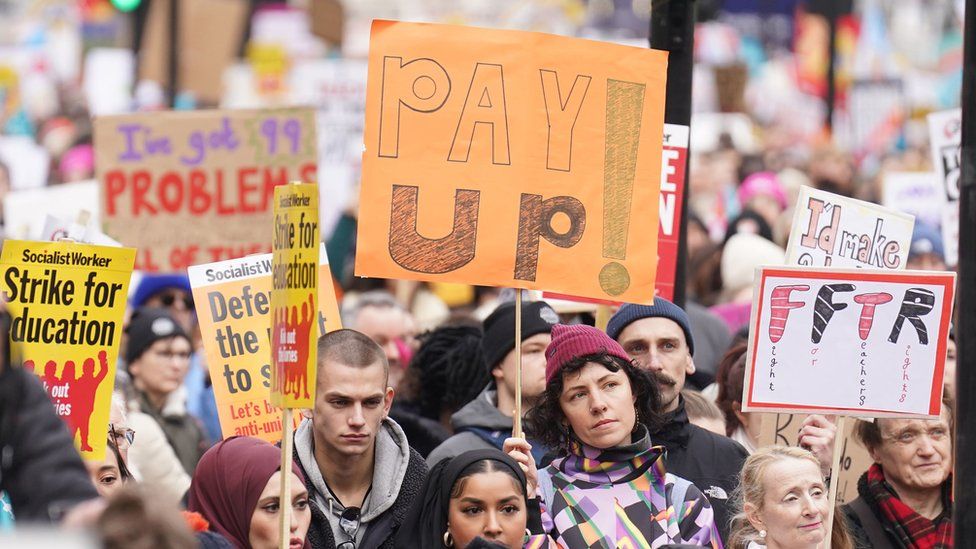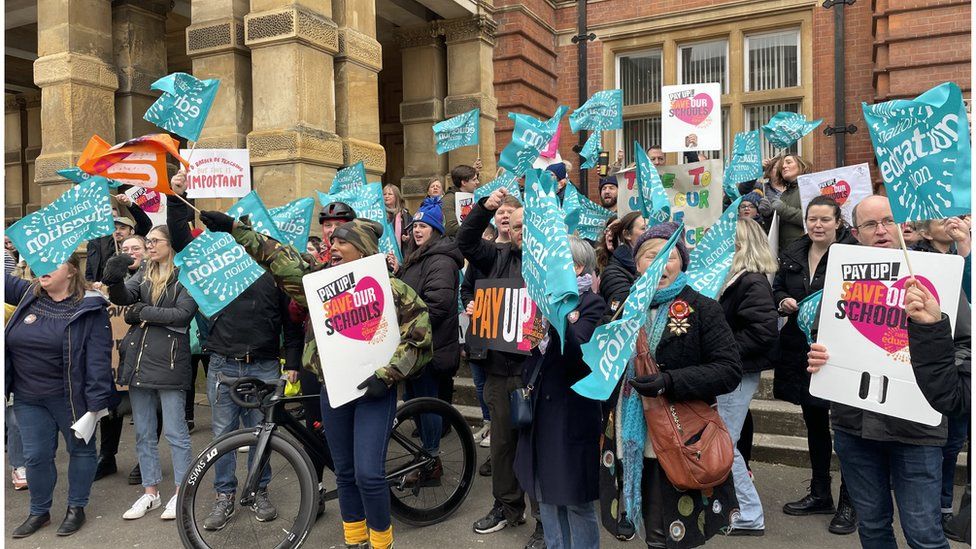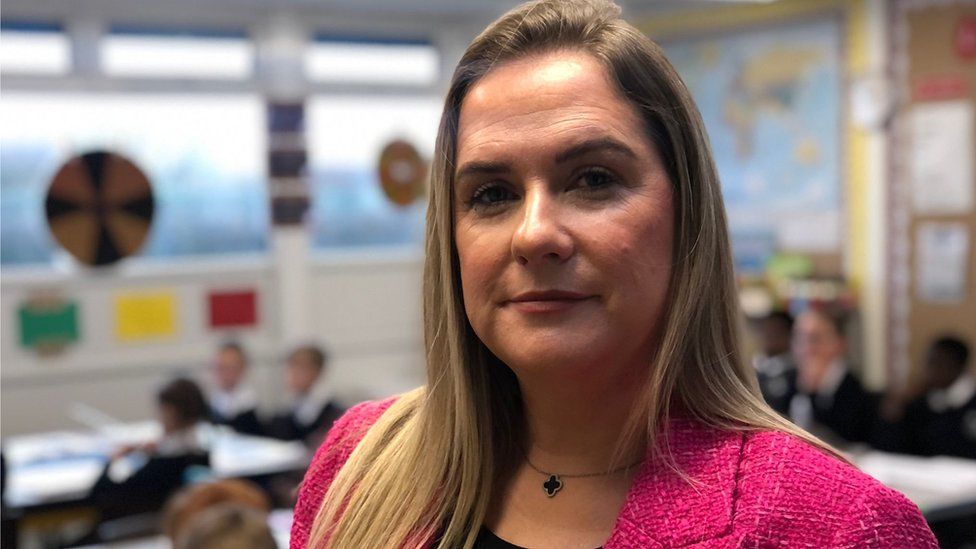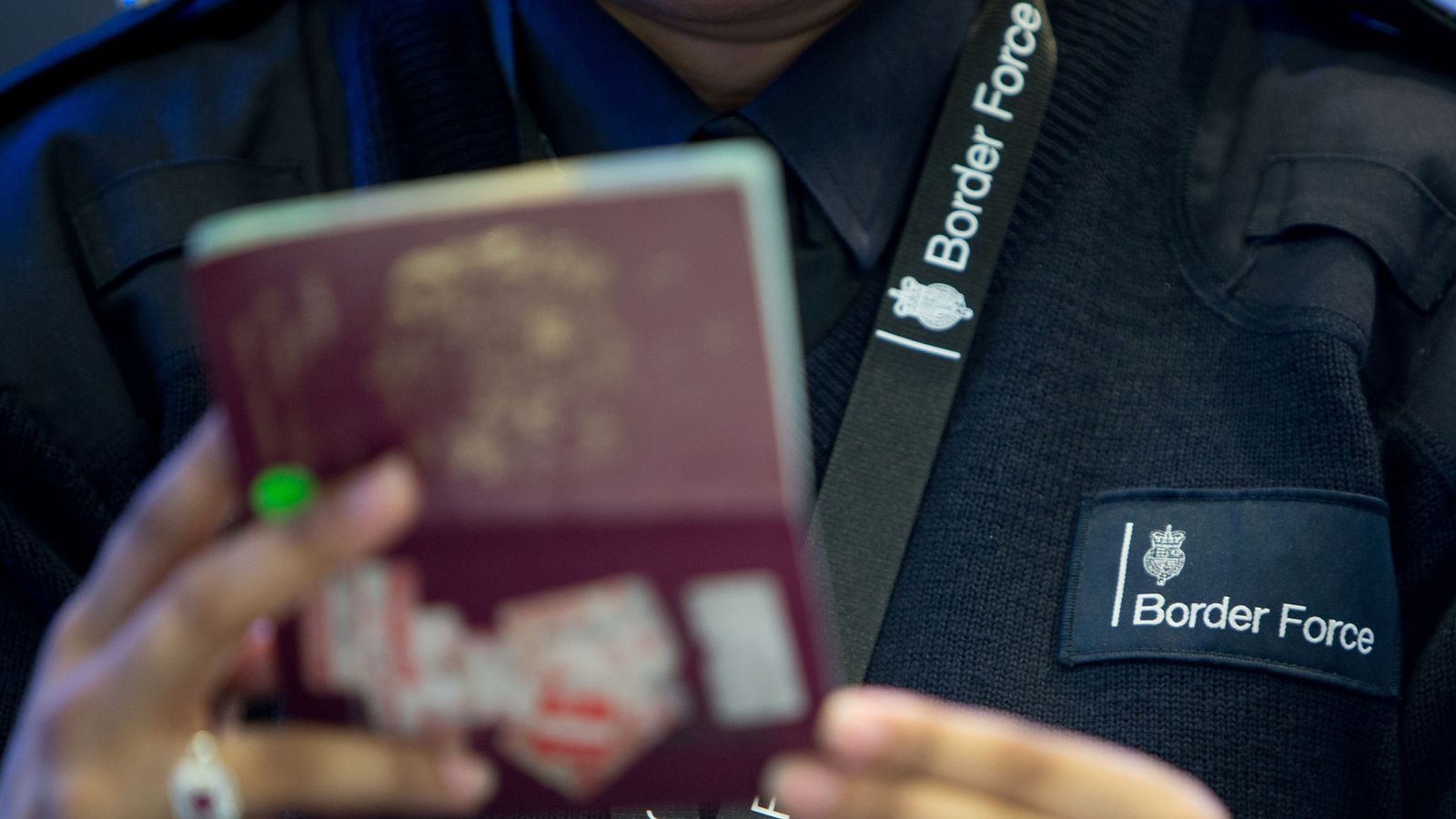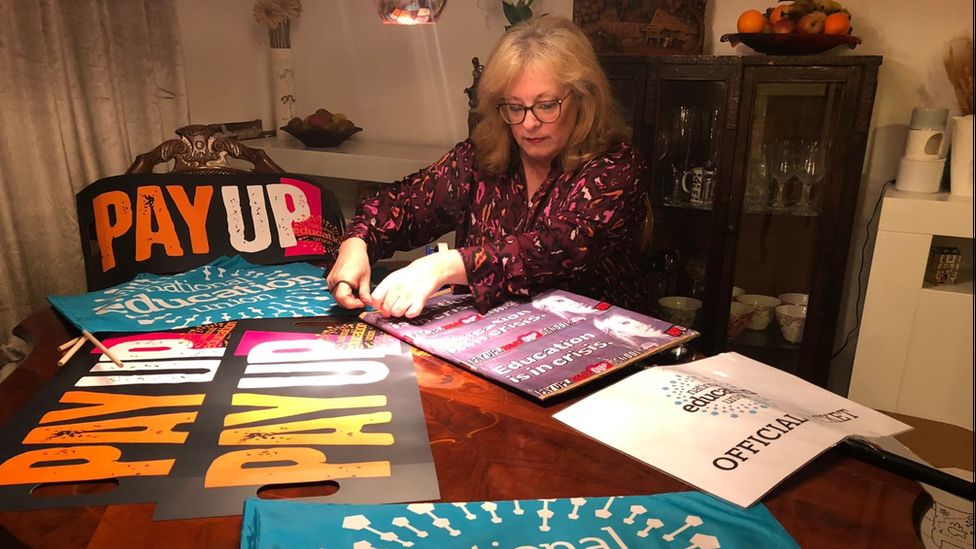Border Force officers will stage fresh strikes during the February half-term over an ongoing pay dispute with the government.
The Public and Commercial Services (PCS) union confirmed on Tuesday night that 1,000 staff would be taking part in walkouts on 17, 18, 19 and 20 February across four ports - Dover, Calais, Coquelles and Dunkirk.
General secretary Mark Serwotka said the move would "impact on people returning from their holidays", but said the "blame" for the action "lies firmly at the feet of ministers who are refusing to put any money on the table".
A Home Office spokesperson said they were "extremely disappointed" with the decision and warned travellers to "be prepared for disruption".
This latest strike announcement comes ahead of mass industrial actions across several sectors on Wednesday, which will include teachers, train drivers and civil servants.
And it is the second walkout by Border Force staff after it staged strikes in airports across Christmas.
During that action, the government brought in military personnel to plug the gaps, and it is understood they will do so again, alongside civil servants and volunteers.
Mr Serwokta warned that the military would not be able to fill in for the "highly-skilled and experienced officers" in French ports, however.
The union boss criticised the government for failing to move on its pay offer, adding: "They say they will talk about money for next year, but our members - who have been offered just a 2% rise at a time when inflation is around 10% - cannot afford to wait for next year.
"Many civil servants are already having to choose between heating and eating, having to claim the benefits they themselves have to administer and they are having to go to foodbanks.
"Ministers should be ashamed at how they treat their own workforce and until they come to the table with money for our members, we will continue to call strike action, with tomorrow's strike being a key part of what will be a continuous, sustained, targeted campaign."
A Home Office spokesperson said: "We are extremely disappointed with the union's decision to strike and the inconvenience this will cause to travellers and businesses.
"We continue to work closely with all affected ports to assess the impacts of this announcement. Whilst we have robust plans in place to minimise any delays, passengers should be prepared for disruption and take action to plan ahead.
"Those intending to travel or ship goods into the UK over strike days should keep up-to-date with the latest advice from operators to check how the strike action will affect them."
Adblock test (Why?)
https://news.google.com/__i/rss/rd/articles/CBMiiwFodHRwczovL25ld3Muc2t5LmNvbS9zdG9yeS8xLTAwMC1ib3JkZXItZm9yY2Utb2ZmaWNlcnMtdG8tZ28tb24tc3RyaWtlLWZvci1mb3VyLWRheXMtZHVyaW5nLWZlYnJ1YXJ5LWhhbGYtdGVybS1wY3MtdW5pb24tYW5ub3VuY2VzLTEyODAwMTM00gGPAWh0dHBzOi8vbmV3cy5za3kuY29tL3N0b3J5L2FtcC8xLTAwMC1ib3JkZXItZm9yY2Utb2ZmaWNlcnMtdG8tZ28tb24tc3RyaWtlLWZvci1mb3VyLWRheXMtZHVyaW5nLWZlYnJ1YXJ5LWhhbGYtdGVybS1wY3MtdW5pb24tYW5ub3VuY2VzLTEyODAwMTM0?oc=5
2023-01-31 22:08:38Z
CBMiiwFodHRwczovL25ld3Muc2t5LmNvbS9zdG9yeS8xLTAwMC1ib3JkZXItZm9yY2Utb2ZmaWNlcnMtdG8tZ28tb24tc3RyaWtlLWZvci1mb3VyLWRheXMtZHVyaW5nLWZlYnJ1YXJ5LWhhbGYtdGVybS1wY3MtdW5pb24tYW5ub3VuY2VzLTEyODAwMTM00gGPAWh0dHBzOi8vbmV3cy5za3kuY29tL3N0b3J5L2FtcC8xLTAwMC1ib3JkZXItZm9yY2Utb2ZmaWNlcnMtdG8tZ28tb24tc3RyaWtlLWZvci1mb3VyLWRheXMtZHVyaW5nLWZlYnJ1YXJ5LWhhbGYtdGVybS1wY3MtdW5pb24tYW5ub3VuY2VzLTEyODAwMTM0
